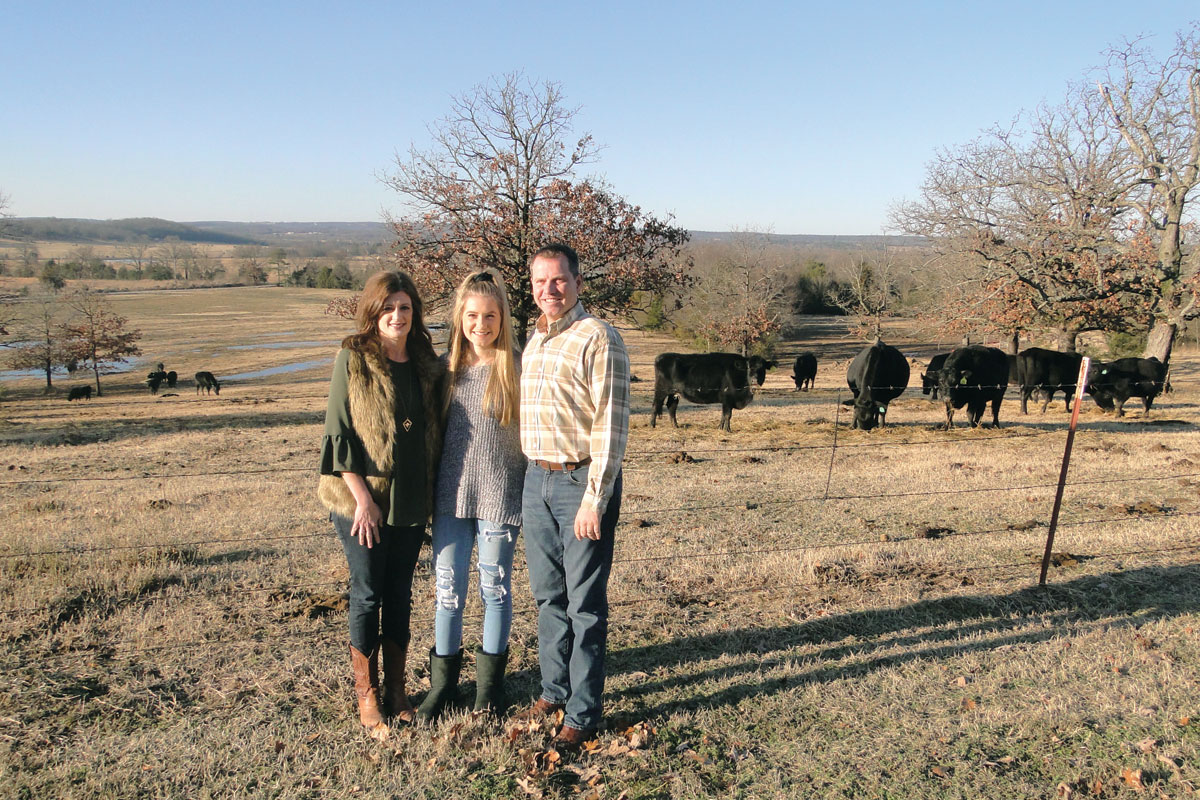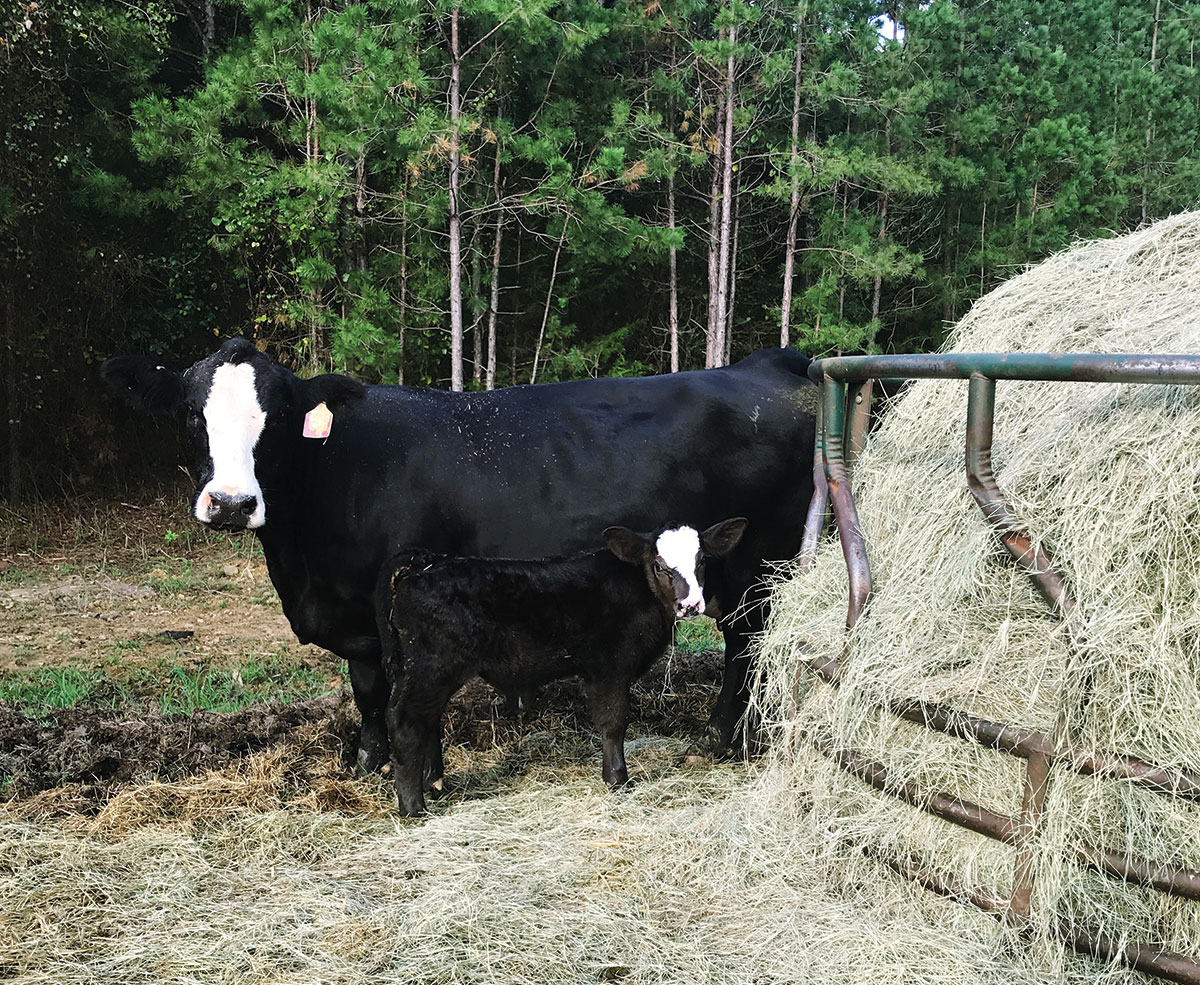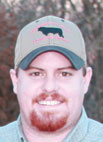
Cody and Angela Jones are not from farming backgrounds, but now have a poultry and cattle operation
With a twist of fate typical of romantic movies, Cody and Angela met at Arkansas Tech University. She had called her roommate’s boyfriend to help fix a tire, but he was unavailable. His roommate, Cody, stepped in to help out, and so it began.
In 2004, Cody and Angela Jones bought 160 acres outside Mansfield, Ark. The couple had been seeking land for months and selected this location because of its proximity to where they grew up with the added benefit of looking like her beloved grandparents’ land. Cody and Angela started with new land and minimal practical knowledge of farming. The land was also half pasture and half wooded, perfect for Cody, and later for their now 15-year-old daughter Hallie, to hunt.
The plan was to raise chickens and pay off the land and houses as soon as possible. A 160-foot well was dug and three poultry houses constructed. Five years later, they drilled another well and added a fourth poultry house. While the farm will technically be paid off in three more years, some needed updates will delay the process but well within their plan.
“Cody runs our farm like a business, which is why we have been so successful,” said Angela.
Previously working for Tyson in management, Cody decided to raise chickens for OK Foods because he felt the income potential was better, partially because they raise chickens to a higher weight. The broiler houses currently raise 7 1/2 pound chickens in 51 to 52 days. Each house is 43-feet by 510-feet and holds 24,300 birds with five to six flocks raised per year.
Cody works full-time on the farm and manages the chickens largely by himself but receives help from family and a few friends. Hallie works on the farm part-time when she is not studying or competing in softball or golf. Because of the antibiotic-free company policy, Cody windrows the houses because he believes they dry out better, which helps with bacteria. Instead of doing a full cleanout once a year, he has decided to begin a partial cleanout once a year so he does not have to add new bedding material and cause disruption in the good and bad bacteria levels. Differing types of bacteria are beneficial or harmful, and he believes this process will maintain a healthy bacterial balance instead of waiting as happens with a total clean out.
Cody uses litter to fertilize his own land once a year for a 40-momma cow herd, according to his NRCS plan and based upon soil testing results. The rest he sells locally.
“Chicken litter is not only much cheaper than commercial fertilizer, it also contains additional organic matter such as rice hulls,” Cody explained.
Additionally, the extra organic matter such as rice hulls, which aids soil moisture retention capacity.
In 2006, Cody decided to add a commercial cow/calf operation. Though the chickens provide 90 percent of the farm’s income, Cody felt his pasture land needed to be used as part of the farm income. He started with 12 heavily Angus influenced mommas because black sold better and now breeds his 40 cows using two commercial Angus bulls. The herd has some Hereford influence with a little Brahman influence that he is trying to eliminate because of temperament issues he experienced with Brahman early on. The past three years he used a spring calving season only but switched to keeping the bulls with the herd year round because of losing calving opportunities if a cow does not breed back or miscarries.
“I know that synchronized breeding is best for a variety of reasons, but in our situation and with a smaller sized herd we benefit by not following that policy at this time,” said Cody.
Calves are sold at the Fort Smith Livestock Auction two weeks to a month after weaning. During that time, they receive vaccinations with the whole herd being worked twice per year. Cody prefers to switch between pour on and injectable wormers in order to prevent resistance.
While Angela is busy teaching English and pursuing a master’s degree in school counseling and leadership, she nonetheless is a strong advocate for agriculture.
In 2018 she was named Farm Bureau’s Ag in the Classroom Teacher of the Year, which is awarded to a non-ag teacher who incorporates agricultural concepts into a traditional subject area.
Her basic method includes teaching critical reading using nonfiction agricultural articles focusing on agricultural issues as a way to show her students what agriculture is really all about. She also incorporates heavily agriculturally influenced novels such as “Animal Farm” and “Between Shades of Gray.”
Cody and Angela did not grow up on farms, but their grandparents farmers.
“I didn’t understand why there were so many tractor stores in our area until I started farming,” Cody said. “That is why it’s important for people to educate the public on how much farming affects the local economy. Agriculture in the traditional classroom is one of the best ways to promote developing accurate knowledge in consumers on topics such as the effects of using antibiotics to treat animals and important agricultural practices such as confinement housing.”
Cody believes in active participation in his industry.
He was recently elected to the board of directors for Farm Credit of Western Arkansas and also currently serves on the Milltown-Washburn Water Users Association. In the past, he served as the Sebastian County Farm Bureau president and served on the Sebastian County 4-H Foundation and the University of Arkansas Extension Service Board.
Angela serves as a 4-H judge as needed and has represented Sebastian County on the Farm Bureau State Women’s Committee. In 2010, the Joneses were honored to be named Sebastian County Farm Family of the Year.






